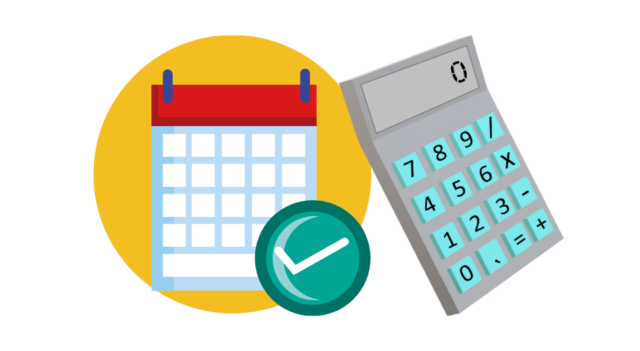Article by Navneet
Getting started with day to day bookkeeping for ecommerce can be tough, especially if you haven’t done it before.
That’s why we’ve whipped up this guide to help you through it. We’re going to delve into set up essentials, what you need to be tracking and how best to track it and more.
Feel free to bookmark this guide for future reference as you start learning the ins and outs of bookkeeping everyday for your upstart web company.
Table of Contents
Day to Day Bookkeeping Essentials
Before we get starting with tracking anything, you need to get a handle on how you plan to track it. We think the best choice is using software for a number of reasons. That includes the classic Excel or specialist software made for bookkeeping like Quickbooks and Xero.
If you want to go the old school route a pen, pencil and notebook can work too, but take our word for it – you’re better off upgrading to software.
The Daily Bookkeeping Basics:
Alright, now that you’ve set up your system for day to day bookkeeping and tracking, it’s time to set up a few more things in order to make sure you’ve got a solid system working and that you can hit the ground running.
Here’s the checklist:
1) Open a bank account (Hint: Keep all business and personal transactions separate)
2) Set up a Sales Invoice template
3) Start keeping records (Don’t worry, we’ll discuss this later!)
Setting Up Your Day to Day Bookkeeping Records
Now that you’ve got the foundation set up to start tracking all your daily bookkeeping entries, we’re going to break down exactly what day to day bookkeeping actually looks like.
At Etail Express we don’t discriminate so we’ll also be doing a section for the people still too stubborn to leave the pen and paper method.
Using Accounting Software
One of the reasons we push using software so much is because it’s so much easier. Specialist software automates the particularly boring parts and their interface makes inputting or editing details a breeze.
When using accounting software with daily bookkeeping, the critical information you’ll be adding is:
- Business details
- The business start date
- Set out and name each account
That’s it!
Now through the magic of technology, most software allows you to import bank transaction data directly from your account into your books, saving you a lot of time and energy.
This is also a major reason why we think you should have separate accounts. It’ll make importing transactions much smoother.
Now that you’ve imported the transactions into your software of choice, all that’s left is to enter them into the appropriate columns.
Using a Pen and Paper for Every Day Bookkeeping
If you insist on staying the stone ages, we’ve got you covered too. While doing everything by hand is a lot more time consuming and depending on your handwriting, messy – it is admittedly even simpler than using software.
All you need to do is:
- Draw some columns for income and expenses, along with details such as date etc
- Add the transactions into the rows
- That’s pretty much the extent of it
How the Day to Day Bookkeeping Gets Done
Now that you’ve got your system running, we bet you’re dying to record your first transaction. Probably more so for the revenue than the joy of bookkeeping, but nonetheless we’re going to run through exactly how you should record the transaction step by step.
Let’s say it’s the first of January, 2021 and your ecommerce platform just got a sale for $100. Hooray!
Next, the customer pays for the product/service, depending on the payment method, it either goes through a payment processor or what have you, but ultimately, the money hits your account (and we hope its a separate account).
From here, you’re free to spend that revenue on things that you need to continue running your business, be it products or sales and marketing.
Now comes the fun part: You keep the corresponding paperwork or digital receipt of the purchase safe in a folder, in case you need to cross reference it for whatever reasons.
Then you go to your bookkeeping system, paper or software, and record the transactions in the relevant columns for income by date. So this $100 transaction would be recorded in your income section, alongside the date: 01/01/21.
Now let’s say from that $100 sale, the next day you decide to reinvest it all into ads, to push your business farther. This is also a transaction you need to record, this time in the expense column.
Alongside that you note the date it happened and voila, you’ve just begun your day to day bookkeeping journey.
Remember, you want to make sure all your transactions are recorded consistently, that’s why you should always remember that each transaction should include:
- The date
- The amount
- The name of the customer/vendor
- The account category
Our final tip? Keep your records on file and organized.
We didn’t add that part about saving a receipt of the transaction in a folder for nothing. Trust us, you don’t want to come up empty handed during an audit or when a government authority is demanding proof of a transaction.
How Often Should I Do My Bookkeeping?
While we titled this article day to day bookkeeping, the answer is: It depends.
The frequency is really going to dictate how often you should be taking care of your books. Let’s say you only have a few big ticket transactions a month, then monthly bookkeeping should suffice or you could break it down to weekly bookkeeping.
But we think it’s best to get into a habit of doing your bookkeeping consistently. This ensures you don’t forget anything crucial and you can be quick to spot any abnormalities.
Lastly, you definitely don’t want to be lazy with it, push it aside and then be forced to deal with the daunting task of catching up on all of your transactions in time. But, you undoubtedly want to focus much of your time on getting sales… so we recommend using a high quality ecommerce bookkeeping service.
What Does a Bookkeeper Do on a Daily Basis?
You’ve ran through the process of setting up your business. You’ve set up your bookkeeping system, made your first sales and have started recording transactions.
You may be asking yourself ‘what now?’. Well, there’s a few more things that go into the life of a bookkeeper.
What’s It Like to be a Bookkeeper?
Following our above example, let’s say your business really starts taking off and you start making a dozen transactions a day.
In a situation like that, especially if you’re doing it by hand, you’ll want to input the transactions at the end of your business day. Make sure you set a cut-off point so that you can balance your books consistently every day.
As the days and weeks go on, you’ll realise there’s a lot of transactions that happen in the day to day operation of a business that aren’t directly related to sales. You want to give them the same level of attention.
Maybe at some point a supplier claims that they haven’t been paid. If you manage your books as we’ve recommended, then you should have any proof of payment saved in a folder. All you have to do is look up the transaction on your books, find the file and send the supplier the proof.
Just like that, thanks to some organisation you painlessly dealt with an issue that could have blown up into something much more frustrating.
By the end of the month, you’ll be able to quickly go through your records to make sure there’s nothing off. You may even begin to spot some emerging trends occurring within your business.
That’s it!
The Importance of Day to Day Bookkeeping
We hinted at this in our last example, but one of the biggest advantages of having organised records is in case something goes wrong.
We get it, with the stress of running a business, things slip your mind. We’re all human here. Good day to day bookkeeping is all about minimizing any of that slippage.
If you come across a situation where you need to go back to a very specific transaction, it’s as easy as opening your books and looking at that date.
Imagine someone who doesn’t spend any time or effort organising their books gets a message from the tax authorities demanding specific transaction details, with a potential for a fine if there are any mistakes.
Now this person has to run through potentially thousands of transactions to find the right one, has to do so in time, might get fined for the slightest mistake and oh – did we mention they have to run a business too?
Believe us, it just makes sense to maintain good books. It’s good business practice and gives you peace of mind. That’s why successful growing businesses always outsource ecommerce bookkeeping service as soon as possible. If you need help finding a great service, read our ecommerce bookkeeper hiring guide.
Final Thoughts
As you can see, for an eCommerce business, bookkeeping is essential.
That being said, depending on how many transactions you’re going through or how fast your business is growing – it can quickly become at the least tedious and at most, overwhelming.
Sure, you can teach yourself the basics but there is always an opportunity cost with choosing to learn that rather than another skill to grow your business, such as marketing.
If you’re in that boat and feel that you won’t have time to handle your books diligently day after day, there is an alternative.
Thanks to modern day tech, you can get a professional bookkeeper to work on your business in a flexible capacity for a fraction of the price of an in-house expert. We really believe that this gives founders the best of both worlds.



